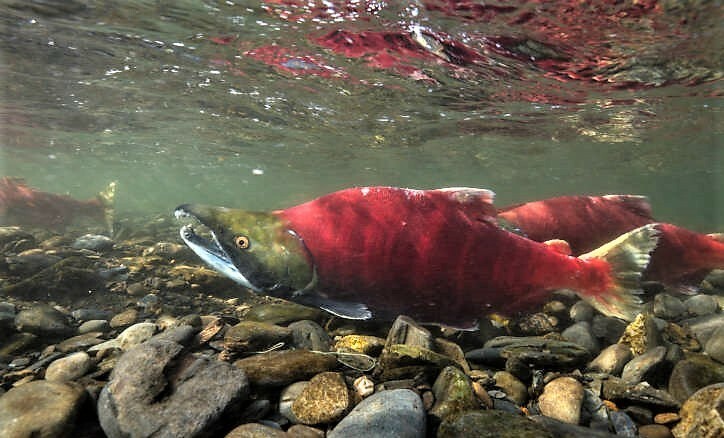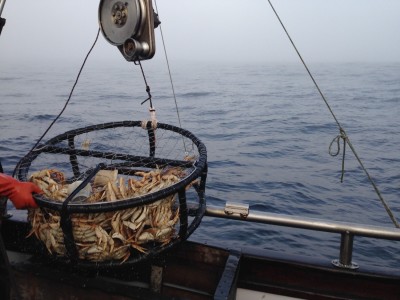For many fishermen, the physical demands of fishing just come with the territory.
Nothing will change that, and many just tough it out, but some fishermen are using supplements to help maintain their health and well-being. Some crews on New Bedford scallop boats, for example, have taken to using the herb turmeric as an anti-inflammatory. “Some guys take turmeric pills, others drink it as tea,” says one such crewman.
Jerry Dzugan, the former director of the Alaska Marine Safety Education Association (AMSEA), has experimented with ginger to avoid seasickness. “Bear in mind that there are not a lot of peer-reviewed studies to support this, but I started taking ginger to help with digestion,” Dzugan says. “And then I found it helped with seasickness.”
Dzugan also reports using a wristband that puts pressure on an acupuncture point to reduce seasickness. “But I took my sailboat on a 120-mile trip, and I was going along thinking it was working great, and then I noticed it had come undone and was hanging loose on my wrist. I guess it was the placebo effect.
Nonetheless, Dzugan has a list of supplements he has heard of fishermen using. “There’s always arnica for muscle pain and tendonitis,” he says, noting that most use arnica cream—though arnica also comes in the form of homeopathic pills. “And as we age, our ability to absorb vitamin D3 decreases, so people in low sunlight environments might want to try taking vitamin D3 supplements, and zinc and magnesium are also good for bone health.”
"There’s more,” says Dzugan. “But multivitamins, minerals, and herbal supplements are no substitute for a healthy diet. In addition, if you are on prescription meds, be sure to let your health care providers know what supplements you are on since some of them, if combined, can lead to problems.” For those with questions, Dzugan recommends fact sheets published by the National Institute of Health (NIH) with information on many supplements.
In addition to the supplements Dzugan mentions, others include omega-3 fatty acids, usually in the form of fish oil supplements that may help maintain heart health. One producer of these supplements, Vital Choice, focuses on sourcing oil from wild sockeye salmon. Protein supplements have been said to help restore muscles after particularly strenuous work, and fishermen working in hot and humid environments can maintain hydration and potentially avoid muscle cramps by drinking electrolyte solutions.
Besides these and the supplements listed above, the NIH reports that studies have shown creatine to be “an efficient form of supplementation for muscle growth in the healthy young population with adequate training in a variety of dosage strategies and athletic activities.” But the NIH goes on to note that more studies are needed to gauge the effects of creatine on older people.
Some athletes—and fishermen can be considered athletes in many ways—take beta-alanine to help improve muscle endurance and reduce fatigue. While the International Society of Sports Nutrition reports that “Beta-alanine attenuates neuromuscular fatigue, particularly in older subjects, and preliminary evidence indicates that beta-alanine may improve tactical performance,” these findings are contradicted by other studies.
"I think like with my wristband experience, there may be a placebo effect with some supplements,” says Dzugan. “But if my body is a petri dish, I’d say from my own experience that some of these supplements work.”







